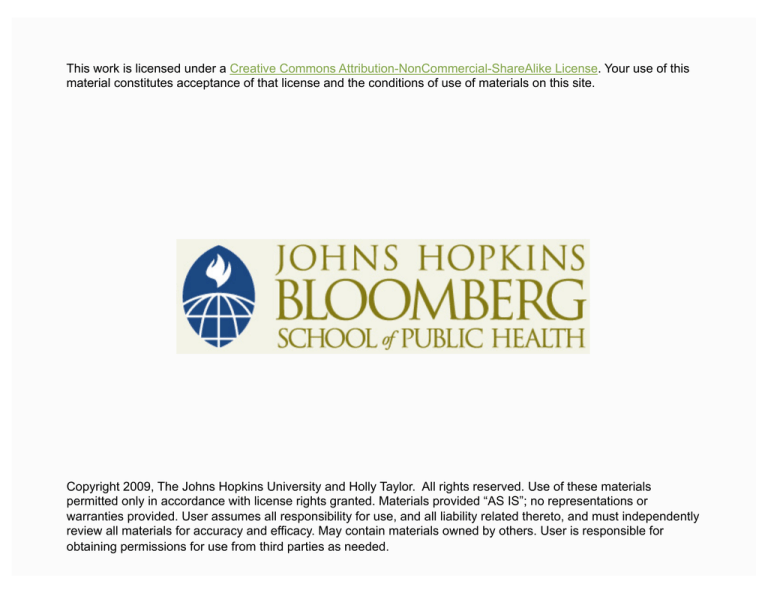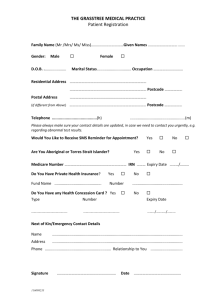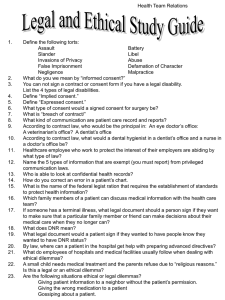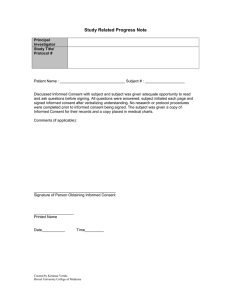
This work is licensed under a Creative Commons Attribution-NonCommercial-ShareAlike License. Your use of this
material constitutes acceptance of that license and the conditions of use of materials on this site.
Copyright 2009, The Johns Hopkins University and Holly Taylor. All rights reserved. Use of these materials
permitted only in accordance with license rights granted. Materials provided “AS IS”; no representations or
warranties provided. User assumes all responsibility for use, and all liability related thereto, and must independently
review all materials for accuracy and efficacy. May contain materials owned by others. User is responsible for
obtaining permissions for use from third parties as needed.
Section D
Application of Framework Part 2
Framework: Tension/Conflict
Consider which, if any, of the ethical principles/requirements are in
tension or in conflict with each other
3
Framework: Tension/Conflict
Beneficence vs. Beneficence
Best interest of individual patient
Best interest of future patients
Scientific validity
Favorable risk benefit ratio
Respect for Autonomy vs. Beneficence
Threats to voluntariness
Best interest of future patients
4
Framework: Key Facts
What are the key facts relevant to the principles/requirements
identified in the case?
- Are there facts missing that would assist in the case analysis?
If yes, what assumptions will you make in order to
proceed?
- Are there contextual issues relevant to the case analysis?
If yes, are these contextual issues relevant to the ethical
analysis of this case?
5
Framework: Key Facts
For this exercise we are going to presume we have all the facts we
need, but, for example, we may want to know exactly how much
Dr. Patel will be reimbursed for participating in the trial to be
assured that the amount is unlikely to have undue influence over
her behavior
6
Framework: Options
What options (or alternatives) are possible for how to proceed?
7
Framework: Options
Which options are there? Which of these options are the most
realistic in this context?
Threats to voluntariness
Consent by third party
Conflicts of interest
Disclosure
Consent by third party
Study design
Consider alternative
designs
What are the pros and cons of adopting each option?
What concerns remain regarding the most realistic options?
8
Framework: Options
Can any additional actions be taken to further minimize these
concerns?
How would each of the options address the moral concerns, tensions
identified?
Threats to voluntariness
Consent by third party
Conflicts of interest
Disclosure
Consent by third party
Study design
Consider alternative
designs
9
Framework: Recommend Option
Which option would you recommend (or what is your assessment of
what happened?
- Provide the ethical reasoning behind (or ethical justification
for) your choice
Threats to voluntariness
Consent by third party
Conflicts of interest
Disclosure
Consent by third party
Study design
Consider alternative
designs
10
Summary
Take apart a case and put it back together
11







